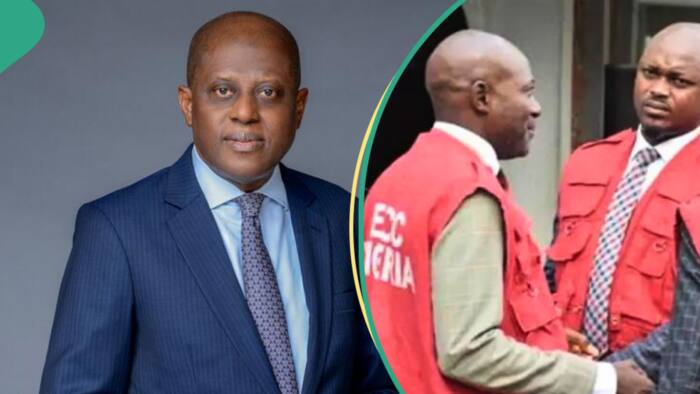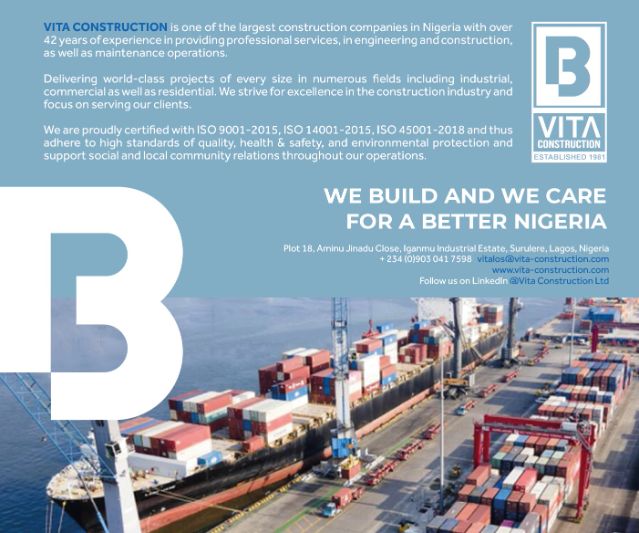In a recent statement, the Governor of the Central Bank of Nigeria, Olayemi Cardoso, revealed that security agencies such as the Economic and Financial Crimes Commission (EFCC) are investigating $2.4 billion in questionable foreign exchange allocations and forward contracts. This revelation follows the completion of an audit of $7 billion in dollar debts inherited by the Cardoso-led CBN from the previous administration.
According to the CBN Governor, several requests for foreign exchange were made with invalid or illegal documents, and these requests have been flagged for further investigation. Cardoso stressed that the apex bank will not condone fraudulent activities of any kind and will cooperate fully with the security agencies to ensure that those responsible for any illegal activity are brought to justice.
The governor also emphasized the importance of ensuring that the country’s foreign exchange is used in a way that supports the development of the Nigerian economy and provides value for all Nigerians. The CBN’s renewed commitment to transparency and accountability has been welcomed by many, who believe that it will help to rebuild confidence in the institution and the country’s economy.
In September of last year, the Central Bank of Nigeria (CBN) hired Deloitte Management Consultants to investigate a number of foreign exchange (forex) transactions. After a thorough investigation, Deloitte concluded that a significant portion of the transactions were either illegal or lacked adequate documentation. As a result, the CBN is refusing to clear those transactions, and the matter has been referred to law enforcement for further investigation.
However, the CBN has stated that any information that contradicts Deloitte’s findings will be considered and that the bank remains committed to transparency and accountability. In addition, the CBN governor has emphasized that the CBN has already cleared all valid forex backlogs, and that these efforts have helped to alleviate pressure on the naira, which has appreciated against the dollar. This news is likely to be welcomed by many in Nigeria, as a stronger naira could help to improve the country’s economy.
Despite these efforts, some challenges remain, such as inflation, which has continued to rise in recent months. However, the CBN remains committed to taking the necessary steps to address these challenges and ensure the stability of the naira. In the coming months, it will be interesting to see how the CBN’s efforts to stabilize the currency will impact the Nigerian economy.
Reacting to recent criticism from members of the organized private sector (OPSN), the Central Bank of Nigeria (CBN) has assured that its foreign exchange (forex) market remains open and transparent for businesses to address any outstanding contractual obligations. However, the CBN governor, Olayemi Cardoso, noted that the bank had thoroughly verified and settled any recognized forex backlogs.
Cardoso further stated that he was aware of some stakeholders having backlogs of forex and that the CBN had done everything possible to make the market transparent. He encouraged those with outstanding forex requests to utilize the open market.
On the issue of crypto, the CBN governor clarified that the Securities and Exchange Commission, not the CBN, is responsible for regulating the crypto market. He also stated that the CBN is working with various agencies to enforce crypto regulations. The CBN’s comments come after some OPSN members expressed concerns about how the CBN had handled the forex market. While some members had their forex requests cleared, others had not, leading to frustration and concern.
The OPSN members were also concerned about the lack of clarity and transparency in the process, and the potential impact on their businesses. The CBN’s assurance that the market is open and transparent is therefore welcome news for OPSN members. However, it remains to be seen how the OPSN members will respond to the CBN’s assurances and whether they will find relief from the issues they have faced in the forex market.
The CBN’s engagement with agencies on the enforcement of crypto regulations also signals that the CBN is taking the issue of crypto seriously. This is in line with the CBN’s previous stance on crypto, which has been to limit the use of crypto in the country. It will be interesting to see how the CBN’s enforcement efforts will affect the crypto market in Nigeria and whether it will impact the use of crypto by businesses and individuals in the country. Some have speculated that the CBN’s actions may push crypto users to other platforms and channels for crypto transactions, while others believe that the CBN’s efforts will ultimately curb the use of crypto in Nigeria. Only time will tell how this issue will play out.
The CBN governor reiterated that the fertilizer donation to farmers through the Ministry of Food Security and Agriculture does not imply the bank has resumed direct interventions.
“We have consistently stated our intention to withdraw from direct intervention,” he emphasized. “The fertilizers distributed were remnants of a previous intervention, not directly initiated by us. Our decision was either to let them perish or allocate them to capable distributors, hence the handover to the Ministry of Agriculture. This action does not signify a return to developmental interventions.”
Regarding banking, the apex bank has instructed deposit money banks to expedite efforts to bolster their capital base to fortify the financial system against potential risks. The MPC expressed contentment with the stability of the banking sector.
In November 2023, Cardoso announced plans for a fresh round of banking recapitalization to support Nigeria’s ambition to become a $1 trillion economy by 2026. The proposed increase in capital bases varies based on banking licenses: regional, national, and international banks are required to maintain minimum capital bases of N10bn, N25bn, and N50bn, respectively.
The committee highlighted the importance of accelerating recapitalization efforts to mitigate risks, emphasizing the need for banks to comply with existing regulations and guidelines.
On the forex front, the naira appreciated to N1,382/$ from N1,420/$, signaling a 2.75% increase. The recent strengthening of the naira follows foreign exchange reforms by the CBN, contributing to forex stability and enhancing investor confidence.
Despite the naira’s appreciation, the prices of goods and services have remained unchanged, underscoring the persisting challenge of import dependency and its inflationary impact.










